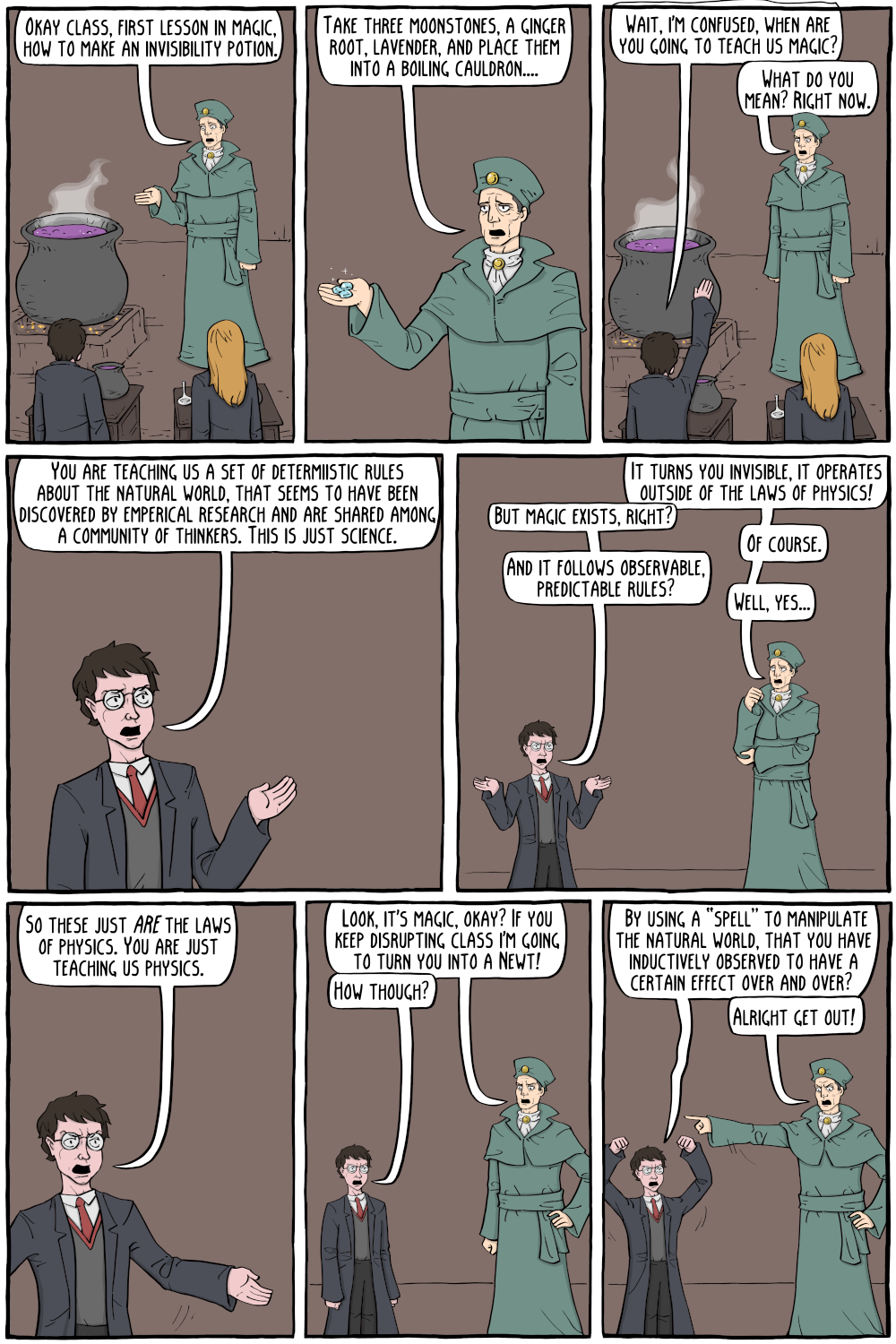
Arthur C. Clarke famously said "any sufficiently advanced technology is indistinguishable from magic", but you can easily reverse it and say that any sufficiently advanced magic is indistinguishable from science and technology. This is particularly obvious in cases like Harry Potter were the rules are so formal and repeatable, and are even taught in school exactly like how we teach science. If magic actually exists, after all, you would just do normal science on it and there would be no reason to distinguish it from science. More sophisticated authors like J.R.R. Tolkien even recognized this, with elves like Galadriel saying she didn't even know what humans meant by the word "magic", since they merely thought of it as an extension of craftsmanship, i.e. technology. The humans called her a witch, but the Noldor elves are students of Aulë, the God of Craft, and what they were doing was more like knowledge in the normal sense.
There is good reason to think people thought this way too back when we believed in magic, Aristotle even wrote a book on magic (which was lost). It seems he thought magic was just another part of natural philosophy. After all if a magic potion works, it is really just medicine. Not only that but if you don't understand science fully, it's reasonable to think you are observing magic in day to day life, even in mundane events like lightning storms. It really wasn't until Christianity try to exorcise magic from the world, claiming it was part of Paganism, that we started to really distinguish it sharply from nature.
Permanent Link to this Comic: https://existentialcomics.com/comic/537
Support the comic on Patreon!










